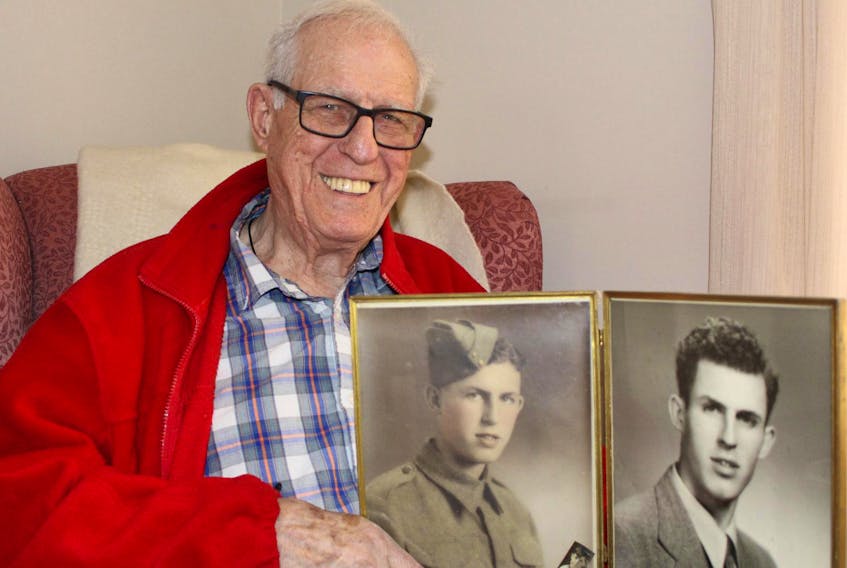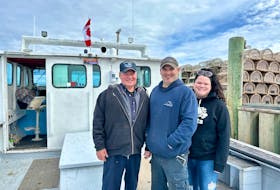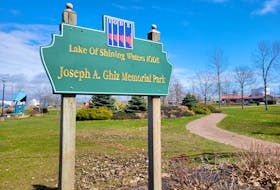NORTHAM, P.E.I. — While the D-Day war effort started on June 6, 1944, it lasted far longer than one day.
“If you went to war between June 6 and early August, you were thought of as part of the D-Day party,” said Ira Enman, a 97-year-old Second World War veteran from Northam, P.E.I.
Enman was a dispatch driver, motorcyclist and truck driver from June 1941 until January 1946.
He arrived in Normandy, on Juno Beach, about a month after the invasion.
“We all knew something was coming. That something was going to happen. We just didn’t know when. There wasn’t much news that we could get about the plans – because everything was classified – you didn’t hear too much propaganda.”
Enman said he wasn’t sure how long he was in London before the journey for Normandy began.
“We’d eat and sleep in the back of the trucks that were on the boats going over. We go on the ship and they treated us well, they tried to keep us in high spirit with music.
“I think we were on the ship about a day or so. It was only to get us there. There were a lot of trucks on board, and other soldiers. There were entire units all sent to do different jobs.”
“There was a lot of uncertainty. A lot of not knowing what to expect and wondering what was going to happen.”
By the time the boats reached the beaches, Enman said there was still some bombing going on, but not as much as there would have been in the first days of battle.
“There were ships as far as you could see. We drove the trucks right off the boats and onto the beaches.”
As a dispatcher in the 7 Light Anti-Aircraft Regiment, Enman had to learn how to shoot a gun as well as carry out duties of delivering messages, prisoners or supplies.
“I had a pistol at my side, but I never had to use it.”
After landing on the beach, Enman and another driver were separated from their regiment. It was two days before they rejoined their group.
“Had it been longer, we would have been considered M.I.A.”
His regiment travelled from spot to spot in France and then made their way into Holland and Belgium.
D-DAY AT 75: Remembering the heroes and sacrifices of Atlantic Canada:
- VIDEO: The road to D-Day
- Why a school in France is named for a Pictou soldier
- U-boat hunter Roderick Deon returns to Juno Beach for D-Day
- Sound of gunfire rang in P.E.I. soldier’s ears
- North Nova Scotia Highlanders at the sharp end of D-Day invasion
- STORY MAP: Follow the D-Day experience of the North Nova Scotia Highlanders
- 12 North Nova Scotia Highlanders murdered at Abbaye d’Ardenne
- ‘It was noisy as the devil,’ says St. John’s torpedo man
- 59th Newfoundland Heavy Regiment was eager to do its part
- A P.E.I. dispatcher’s long, uncertain journey to Normandy
- LAURENT LE PIERRÈS: D-Day invasion was best birthday present for my Dad
- ‘Sight of our boys being blown up ... wouldn’t leave my mind:’ Bedford veteran, author
- Dartmouth veteran's first combat mission was D-Day invasion
- Halifax air gunner had bird’s-eye view of D-Day
- ‘We had everything fired at us but the galley sink’: Yarmouth County veterans share war and D-Day memories
- New Waterford veteran has lived good life after surviving D-Day invasion
- JOHN DeMONT: An old film clip of D-Day shows the nature of courage
- D-Day landing map’s origins a mystery to army museum historians









